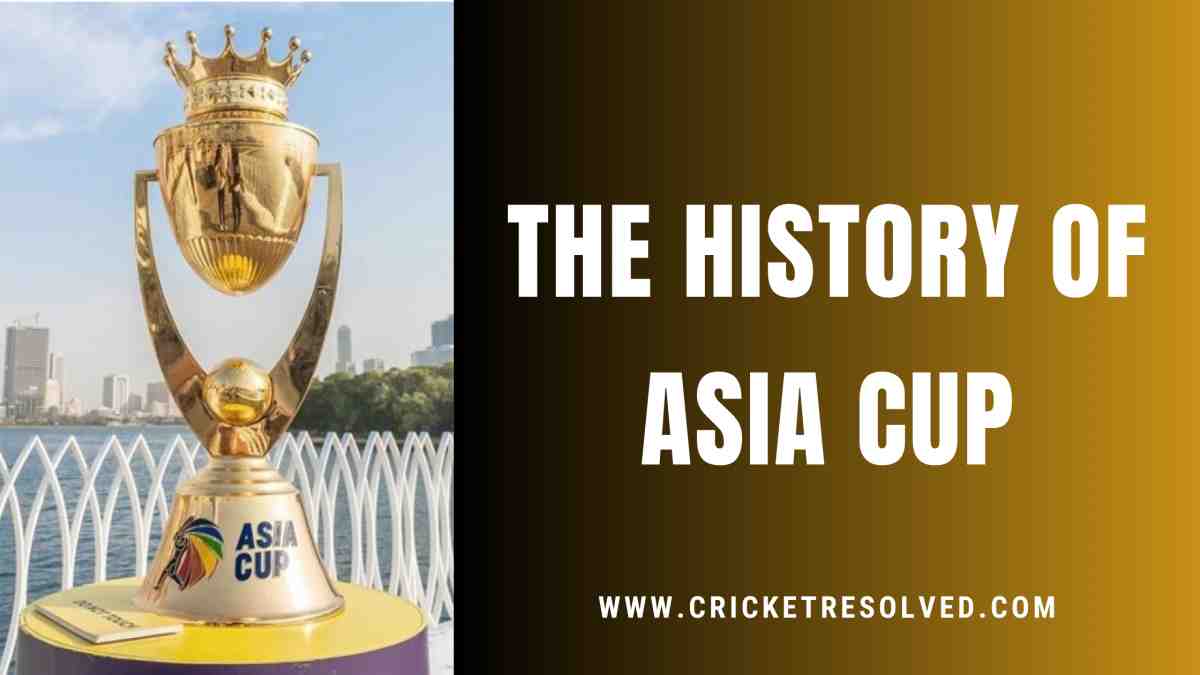
The Asia Cup, a premier cricket tournament in Asia, has undergone significant changes since its first edition in 1984. Initially, the tournament was a round-robin format, with India, Pakistan, and Sri Lanka participating. The inaugural edition was held in Sharjah, UAE, and India emerged as the champions.
Over the years, the Asia Cup has witnessed various alterations in its format and participating teams.
In 1986, Bangladesh joined as a full member. Sri Lanka won the second edition, held in Sri Lanka. In 1988, the tournament returned to Bangladesh, and India clinched their second title.
The fourth edition of the Asia Cup happened in 1990. The tournament was held in India and saw the hosts lifting the trophy.
In 1995, the tournament returned to Sharjah, and India emerged victorious yet again. The tournament took a hiatus until 1997 when Sri Lanka hosted and won the event.
In 2000, Pakistan secured their maiden Asia Cup title, held in Bangladesh. The tournament format changed in 2004, with the introduction of a group stage followed by a Super Four stage, leading to a final. Sri Lanka won the 2004 edition in Sri Lanka.
The tournament continued to evolve, featuring teams like Hong Kong, the United Arab Emirates, and Afghanistan.
In 2008, the Asia Cup returned to Pakistan, and Sri Lanka claimed their fourth title. The 2010 tournament was hosted by Sri Lanka, and India emerged as champions.
In subsequent editions, the tournament witnessed intense rivalries, thrilling encounters, and exceptional performances. The format continued to change, including the introduction of T20 matches in 2016. India clinched the 2016 and 2018 editions held in Bangladesh and the United Arab Emirates, respectively.
The 2020 edition was postponed to 2021 due to the covid pandemic. Then the tournament was again pushed to 2022 and took place in the UAE. Sri Lanka won the 2022 Asia Cup by defeating Pakistan.
The 2023 edition happened right before the ODI World Cup, and the matches were played in Pakistan and Sri Lanka. India defeated Sri Lanka in the final to lift their 8th Asia Cup title.
With each edition, the tournament has grown in popularity and become a highly anticipated cricket event. The tournament has not only provided a platform for Asian teams to showcase their skills but has also fostered camaraderie and healthy competition among cricketing nations in the region.
Also Read: Complete List of All IPL Team Owners
Asia Cup Format
| Edition | Format |
|---|---|
| 1984-90 | Round-robin |
| 1995 | Double round-robin |
| 1997-2000 | Single round-robin followed by Final |
| 2004 | Group stage followed by Super Four and Final |
| 2008-2018 | Group stage followed by Super Four and Final |
| 2016, 2022 | T20I format, Group Stage, Super Four, and Final |
The Asia Cup has undergone various format changes since its inception in 1984. It started with a round-robin format, where all teams played against each other once.
In later editions, formats like double round-robin, single round-robin, and group stages with Super Four stages were introduced.
The tournament traditionally followed a 50-over ODI format, but the 2016 and 2022 editions were played in the T20I format.
The most common format in recent years has been a group stage followed by a Super Four stage, where the top teams from each group compete against each other.
The top two teams from the Super Four stage then face off in the final to determine the champion. The specific number of teams and groups can vary depending on the edition.
Top Performers in Asia Cup
Sachin Tendulkar (India): The legendary Indian batsman, Sachin Tendulkar, holds numerous records in the Asia Cup. He is among the highest run scorers in the tournament’s history, amassing a staggering 971 runs in 23 matches.
Sanath Jayasuriya (Sri Lanka): The explosive Sri Lankan batsman, Sanath Jayasuriya, was known for his aggressive batting style. He is the leading run-scorer in a single edition of the Asia Cup, having scored 378 runs in the 2008 edition.
Muttiah Muralitharan (Sri Lanka): The spin wizard Muttiah Muralitharan is the highest wicket-taker in the Asia Cup. He claimed a remarkable 30 wickets in just 23 matches, bamboozling batsmen with his variations.
Virat Kohli (India): One of the modern-day greats, Virat Kohli, has consistently performed well in the tournament. He holds the record for the most runs scored in a single edition by an Indian, scoring 317 runs in the 2012 edition.
Shahid Afridi (Pakistan): Known for his explosive batting and handy leg-spin, Shahid Afridi has been a match-winner for Pakistan in several encounters. He holds the record for the fastest century in the tournament, scoring it off just 53 balls against Bangladesh in 2010.
Lasith Malinga (Sri Lanka): The Sri Lankan pace bowler Lasith Malinga has been a standout performer in the Asia Cup. With his deadly yorkers and unorthodox action, he is the leading wicket-taker among pacers, taking 33 wickets in 24 matches.




Comments (1)
Men’s Asia Cup Winners List from 1984 to Date - Cricket Resolvedsays:
January 22, 2024 at 2:01 pm[…] the long history of the Asia Cup, only 3 teams have laid their hands on the coveted trophy so far. We will have a look at the 3 […]